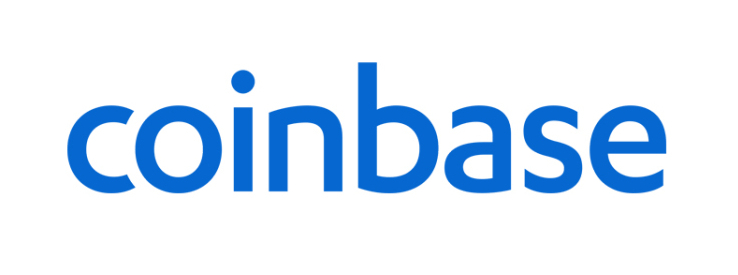
If you want to invest in cryptocurrency and need a simple way to start trading, Voyager should definitely be on your radar.
This cryptocurrency broker is a popular alternative to exchanges like Coinbase and Gemini. With support for over 60 cryptocurrencies and commission-free trading, it’s also very beginner friendly.
But just like picking the right brokerage account, you need to find a cryptocurrency broker that has the features you need. That’s why our Voyager review is covering what Voyager offers, its fees, and how to decide if it's the right platform for you.
Check out our list of the best crypto exchanges to see how Voyager compares.
IMPORTANT UPDATE: Voyager has declared Chapter 11 bankruptcy, and they have announced they don't have enough assets to make their customer deposits 100% whole. That's a big deal, as it means that they didn't clearly keep customer asset separate. All customer assets are currently frozen as of July 2022.
Voyager Details | |
|---|---|
Product Name | Voyager |
Product Type | Cryptocurrency Broker |
Supported Coins | 60+ |
Fees | Spread On Trades (But No Commissions) Withdrawal Fees |
Promotions | Earn $25 In Free BTC |
Pros And Cons
Pros
Cons
What Is Voyager?
Voyager is a cryptocurrency broker that began in 2017. The company has its headquarters in Jersey City, New Jersey, making it a U.S.-regulated company. Voyager is also publicly-traded like its competitor Coinbase.
Voyager supports over 60 digital assets and lets you buy, sell, and manage your cryptocurrency portfolio from its mobile app. This is different from most exchanges that prioritize desktop support. Currently, Voyager is available in every U.S. state except New York. Voyager is also planning to expand to Canada and Europe in the near future.
Overall, Voyager aims to simplify cryptocurrency investing. According to its website, you can sign up and begin investing in three minutes or less.
Voyager Features
Despite being mobile-focused, Voyager has an impressive number of features that help it go toe-to-toe with popular exchanges and lending platforms.
Cryptocurrency Trading
Voyager lets you buy over 60 digital assets right from its Android or iOS app. Voyager is also commission-free and states you only pay the quoted price you see on trades. However, you still pay a spread fee. And if Voyager can beat the quoted price, it takes a portion of those savings.
It’s also important to note that Voyager is a broker, not an exchange. This means Voyager lets you place trades and uses its tech “Smart Order Router” to let you buy cryptocurrencies from various exchanges at the lowest prices possible.
Because of this technology and commission-free structure, Voyager is a cost-effective way to invest in cryptocurrency. Popular cryptocurrencies and stablecoins it supports include:
You fund your Voyager account with USD from your bank account or cryptocurrency from another wallet. New users have a daily deposit limit of $5,000.
Voyager lets you place trades as market or limit orders. This gives you the flexibility to buy cryptocurrencies at current market rates or to set a limit order to buy a particular crypto if the price drops.
Cryptocurrency you buy is held in Voyager’s custodial wallet. This is the same system Coinbase and most exchanges use. If you want to increase your security, you may want to eventually move your funds from Voyager to a wallet like Ledger where you have full control.
Cryptocurrency Rewards
One compelling Voyager feature is its cryptocurrency rewards. With Voyager, you can earn passive crypto rewards on your holdings. This is similar to companies like BlockFi and Celsius that let you deposit cryptocurrency to earn interest.
Here’s how Voyager’s cryptocurrency rewards rates look for several popular cryptos and stablecoins:
Voyager Interest Rates | ||
|---|---|---|
Asset | Interest Rate | Min Monthly Balance |
Bitcoin | 5.75% | 0.01 BTC |
Cardano | 4.5% | 100 ADA |
Ethereum | 4.6% | 0.5 ETH |
Polkadat | 12% | 20 DOT |
Shiba Inu | 2% | 15M SHIB |
USDC | 9% | 100 USDC |
Rates are subject to change. Additionally, Voyager may lend, sell, invest, or use your deposited funds in various ways, which presents risk. This is the same risk you face when lending on platforms like BlockFi.
You can withdraw your funds anytime but the withdrawal process can take up to seven days. Rewards are paid out as the same cryptocurrency you deposited, and Voyager pays rewards on the fifth day of each month.
Voyager Token & Loyalty Program
Like Celsius, Voyager has its own token (VGX) that rewards users for their loyalty to the platform. Owning certain amounts of VGX places you into different tiers, which unlocks perks like referral bonuses and bonus cryptocurrency.
Here’s how Voyager’s loyalty program works:
Voyager Loyalty Program | |||
|---|---|---|---|
Adventurer | Explorer | Navigator | |
VGX Requirement | 500+ VGX | 5,000 VGX | 20,000+ VGX |
VGX Staking Rewards | 7% | 7% | 7% |
Earnings Reward Boost | +0.5% | +1% | 1.5% |
Refer-a-Friend Bonus | $30 | $35 | $40 |
Crypto Back Rewards | 1x | 2x | 3x |
VGX is currently trading at around $5, down from a high of around $6.80 in early 2021. This means it currently costs approximately $2,500 to secure your spot in Adventurer, Voyager’s first loyalty program tier.
However, if you’re a serious Voyager user, this price could be worth it. For example, the earnings reward boost pays you an annual reward percent boost on various cryptocurrency assets Voyager supports.
This reward is paid monthly, and even though 0.5% to 1.5% might sound insignificant, this could be a handsome sum depending on how large your Voyager portfolio is.
Crypto back rewards also secure better prices on trades and pays you with bonus VGX at the end of each month. According to Voyager, additional perks like withdrawal discounts and cryptocurrency cash back are also coming.
Voyager Debit Card
While it isn’t currently available, the Voyager debit Mastercard is a zero-fee, cryptocurrency rewards card that’s in the pipeline.
This card lets you spend USDC like cash while earning rewards on your balance. Currently, the interest rate for USDC on Voyager is 9%, which is far more than you can find in any basic checking or savings account.
Additionally, Voyager states that loyalty program members will eventually earn cryptocurrency cash back for spending. Voyager states the rate will be 0.10% to 0.30% depending on your loyalty program tier.
It’s difficult to judge this card fully until it hits the market. But it’s promising that Voyager is expanding its offerings and also rewarding VGX token holders.
Token Staking
Staking involves locking up cryptocurrency to help validate transactions and earn crypto rewards. This is how Proof-of-Stake (PoS) cryptocurrencies like Algorand and Cardano operate versus something like Bitcoin, which relies on mining and Proof-of-Work (PoW). Learn more about the difference between PoS and PoW.
Jargon aside, the takeaway is that staking lets you earn passive income with your cryptocurrency. And, you can stake VGX tokens and currently earn 7% in annual rewards.
If you have an active Voyager account, you actually stake VGX automatically. Alternatively you can buy VGX and stake it on your own through MetaMask.
Earning 7% isn’t groundbreaking when you consider platforms like Celsius pay upwards of 17% APY. However, if you’re buying VGX to get into the Voyager loyalty program, automatic staking is an extra perk.
Referral Program
Voyager pays you $25 in free Bitcoin if someone you refer funds their account and spends at least $100. Your referral also gets $25 in free Bitcoin.
This is a very competitive referral program. In fact, it beats Coinbase since Coinbase has the same terms but only pays each person $10 in free Bitcoin. Plus, you can earn up to $40 per referral through Voyager’s loyalty program.
Are There Any Fees?
One advantage of using Voyager versus many cryptocurrency exchanges is that it’s fairly low-cost. As mentioned, Voyager uses its Smart Order Router technology to find pricing discrepancies across various exchanges to try and beat quoted prices. If Voyager beats the quote price, it takes a portion of those savings and passes some savings onto you.
Unfortunately, Voyager doesn’t state how much it takes. Additionally, some users have been unhappy with Voyager's spreads and have complained that limit orders are often more expensive than market orders. This is why it’s good practice to compare live prices on several platforms before trading.
Voyager also charges dynamic withdrawal fees which can get pricey. For example, previous withdrawal fees have included 0.0005 BTC and 35 USDC. That's like paying $30 to $35 to take money out of an ATM.
Fees for withdrawing crypto may not be a concern if you're planning to "buy and hold" your assets for a long period of time. But if you expect to make frequent withdrawals, you may want to look for a platform that has a static withdrawal fee structure (or one that doesn't charge withdrawal fees at all like Celsius).
How Does Voyager Compare?
Since Voyager is a cryptocurrency broker, it shares some features with cryptocurrency exchanges and lending platforms. Here’s how Voyager stacks up against two popular U.S. cryptocurrency exchanges:
Header | |||
|---|---|---|---|
Star Rating | |||
Supported Coins | 60+ | 100+ | 50+ |
Transaction Fees | Spread fee that's applied when Voyager is able improve the price of your order | $0.99 to $2.99 + spread of ~0.50% | $0.99 to $2.99 or 1.49% of trade (over $200) |
Interest Rates | Up to 12% | Up to 5% | Up to 8.05% |
Desktop App | |||
Cell |
Because of the fee structure, Voyager can be more cost-effective than trading with Coinbase or Gemini, provided you don’t make too many withdrawals.
It’s also worth noting that Voyager doesn’t have the best interest rates. It does beat many exchanges, but platforms like Crypto.com and Celsius pay up to approximately 14.5% APY and 17% APY respectively.
How Do I Open An Account?
To sign up for Voyager, you first download the app for Android or iOS. Voyager follows KYC requirements. This means you have to provide personal information including your:
- Name
- Date of birth
- Home address
- Phone number
- Social security number
Voyager also asks you to verify your identity which usually involves uploading a picture of you holding your driver’s license or passport. Once Voyager verifies your account, you get an email and app notification that you can begin trading.
Is Voyager Safe?
Because Voyager is regulated in the United States, it has certain perks in terms of security. For starters, cash is FDIC-insured up to $250,000, so your cash balance has some protection.
Voyager also uses Plaid to connect to your bank. This is the same technology many leading fintech apps use and it helps keep your data secure and private. You can also improve your account security by:
- Using a strong password
- Enabling 2-factor authentication
- Maintaining your device’s security
In its risk disclosure, Voyager notes that cryptocurrency isn’t FDIC-insured or protected by any form of insurance. This means that if Voyager is hacked or you lose access to your account through a crypto scam, you’re probably out of luck.
Plus, Voyager recently declared Chapter 11 bankruptcy, and said that it doesn't have enough money to make customers whole for the assets they had on deposit. That's a big deal, and highlights the huge risk of Voyager.
Is Voyager Right For You?
Voyager is not recommended for anyone at this time. Currently all customer assets are frozen and customers cannot make withdrawals.
Voyager Features
Product Type | Cryptocurrency broker |
Min Purchase | $10 |
Supported Coins | 60+ |
Free Wallet | Yes |
Maintenance Fees | No |
Deposit Or Withdrawal Fees | Free deposits and various withdrawal fees |
Supported Payment Types | USD |
Insurance | Cash is FDIC-insured but Voyager doesn’t carry any insurance for cryptocurrencies. |
Security | Plaid and 2-factor authentication are the main features. |
Mobile App Availability | Android and iOS |
Desktop Availability | In Beta |
Customer Support Options | Voyager has a help desk to assist customers with basic account questions. There’s also a support contact form. Finally, you can use the in-app support option to submit a support ticket. |
Promotions | Earn $25 in free BTC |

Tom Blake is a personal finance writer with a passion for making money online, cryptocurrency and NFTs, investing, and the gig economy.






